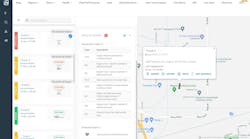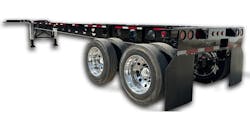The US Supreme Court’s 9-0 ruling on June 26 in NLRB vs Noel Canning that President Barack Obama's January 2012 recess appointments to the National Labor Relations Board (NLRB) during a "pro-forma" session of the US Senate were unconstitutional. Because of this decision more than 700 NLRB decisions or rulings issued between January 2012 and August 2013 (when the Senate properly confirmed the current NLRB members) are potentially invalid.
This ruling has broad impacts well beyond the NLRB as it sets a legal precedent over how to determine whether Congress is on a formal recess or not, according to Truck Renting and Leasing Association officials. For many years Presidents of both parties have used recess appointments to put in place controversial members of their administrations. This has been over the objection of particularly the Senate which must give ultimate approval for many agency and cabinet posts. This court ruling could alter the way future nomination battles take place and limit the President and bolster Congress' confirmation powers.
The June 26 court ruling bluntly stated that the Senate--and not anyone else--sets its own calendar and thus determines whether or not it is in session or out of session. The court said, "The Constitution thus gives the Senate wide latitude to determine whether and when to have a session, as well as how to conduct the session. This suggests that the Senate's determination about what constitutes a session should merit great respect."
Although the Supreme Court ruled that the Senate was in session and the Obama Administration acted improperly with its NLRB appointments, the court also affirmed that any President has the right to appoint members of their administration during any official recess--and not just one between two Congresses every other year.
The Coalition for a Democratic Workforce (CDW), of which TRALA is an active member, filed an amicus brief in support of this case. TRALA has been working in conjunction with the CDW to determine both legislative and strategic planning as the case was deliberated through the court system. TRALA welcomes this decision and will continue to work with the CDW to ensure anti-business, pro-union forces of the NLRB are held accountable for their actions.








